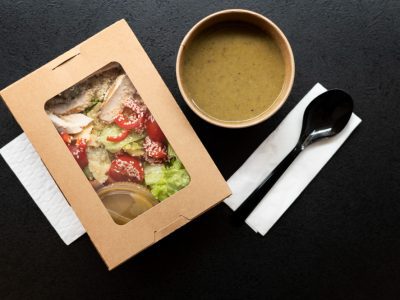There are three types of veganism: ethical, dietary, and environmental. While they all have the same goal of reducing harm to animals, their motivations and diets vary greatly.
Ethical vegans are the purest form of veganism.

They refuse to consume or use animal products or byproducts, including honey and wool. Dietary vegans choose not to eat meat, eggs, dairy, or other animal products but may use other animal-based products such as leather and beeswax. Environmental vegans focus on reducing their ecological footprint by reducing the consumption of animal products but may not adopt all the principles of veganism.
Each type of vegan has different dietary restrictions, so it’s important to know which type you are dealing with before you decide to cook for them.
This article will break down each type of vegan and their corresponding diet.
The Three Types of Veganism
So, you’re thinking of going vegan?
That’s great! But there are a few different types of veganism, and it’s important to understand the differences before you make the switch.
There are three main types of vegans: ethical, dietary, and environmental.
Ethical vegans are the most hardcore—they don’t consume animal products or byproducts.
Dietary vegans are more relaxed; they might eat honey or wear leather but don’t consume meat, eggs, or dairy.
Environmental vegans are the least strict; they might eat organic meat or eggs from free-range chickens, for example.
Each type of vegan has its unique dietary restrictions and guidelines. So before you make the switch, it’s important to do your research and figure out which type of veganism is right for you.
What They Eat
As a dietitian, I’ve worked with plenty of vegans in my time. And while there are some general similarities among them, I’ve found that there are three main types of veganism.
The first type is the ethical vegan. This person doesn’t eat animal products because they believe in the ethical treatment of animals. The second type is the environmental vegan. They don’t eat animal products because they believe that raising animals for food is damaging to the environment. And the third type is the health vegan. They don’t eat animal products because they believe that this is the healthiest way to eat.
Each of these groups has its own dietary restrictions, and it’s important to understand these before you start cooking for a vegan friend or family member. For example, the health vegan might avoid processed foods and eat a lot of whole grains, while the environmental vegan might avoid soy products because they’re environmentally damaging.

The Pros and Cons of Each Diet
So you’re thinking of going vegan? That’s great! There are three main types of veganism to choose from, each with its own set of pros and cons. Here’s a breakdown of each:
1. The Standard Vegan: This is the most popular type of veganism and the one that most people think of when they hear the word “vegan.” Standard Vegan follows a plant-based diet, which means that they avoid all animal products, including meat, dairy, and eggs.
2. The Raw Vegan: The Raw Vegan diet is exactly what it sounds like—all foods are consumed in their raw form. This means no cooking, no baking, no frying. Some people choose to go raw vegan because they believe that cooking destroys the enzymes and nutrients in food.
3. The Vegan Ketogenic: The Vegan Ketogenic diet is a bit more restrictive than the standard vegan diet. As the name suggests, it follows the ketogenic diet, which is high in fat and low in carbs. This veganism is recommended for people who want to lose weight or have diabetes or other metabolic issues.
Which Types of Veganism Is Right for You?
Not sure which type of veganism is right for you? Don’t worry; you’re not alone. In fact, I get this question a lot from clients. And while there is no one-size-fits-all answer, I can give you a general overview of the three most common types of veganism.
First, there’s the unhealthy vegan. This is the person who skips all animal products, including meat, dairy, and eggs, but still eats a lot of processed foods. As you can imagine, this type of veganism is not sustainable in the long run and can actually be harmful to your health.
Next, there’s the semi-healthy vegan. This person avoids processed foods but still eats meat, dairy, and eggs. While this type of veganism is healthier than the unhealthy variety, it’s not as healthy as it could be.
The healthiest type of veganism is the whole food plant-based diet. This person avoids all animal products and eats only plant-based foods. This diet is not only sustainable in the long run but also incredibly healthy.
How to Transition to a Vegan Diet
The transition to a vegan diet can seem daunting, but it doesn’t have to be. Here are a few tips to help you get started:
1. Start by removing meat and dairy from your diet. This can be a big change, but it’s a good place to start.
2. Find vegan replacements for the foods you love. There are plenty of vegan cheese, meat, and milk substitutes out there. Try out a few different brands until you find one you like.
3. Be patient. It might take some time for your body to adjust to your new diet. Give yourself some time to get used to it, and don’t give up if you have a bad day.
Remember, the most important thing is choosing a plant-based diet for the animals, the environment, and your health. So don’t worry if you don’t fit into one of the “traditional” vegan categories—you’re still doing your part to make the world a better place.

Conclusion
There are three general types of vegans: ethical, dietary, and environmental. While they all live vegan lifestyles, they may have different reasons for doing so.
Ethical vegans are those who choose to live vegan for moral reasons. They believe that all animals should be treated with respect and that exploiting them for food, clothing, or other products is wrong.
Dietary vegans follow a vegan diet for health reasons. They may believe that a plant-based diet is healthier than a meat-based one or better for the environment.
Environmental vegans are vegan for environmental reasons. They believe that the livestock industry is one of the leading contributors to climate change and that eating vegan is one way to help the environment.














